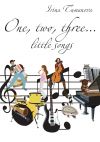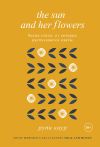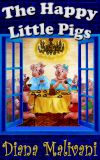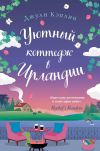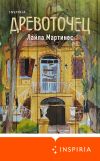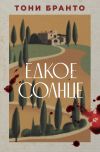Текст книги "Английская коллекция. Саки (Г. Х. Манро). Семь кувшинчиков для сливок / Saki. The Seven Cream Jug"
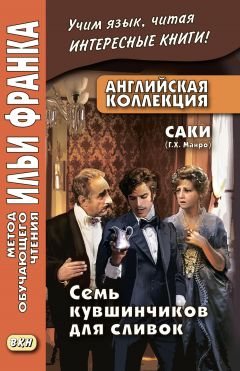
Автор книги: Саки
Жанр: Учебная литература, Детские книги
Возрастные ограничения: +16
сообщить о неприемлемом содержимом
Текущая страница: 5 (всего у книги 15 страниц) [доступный отрывок для чтения: 5 страниц]
“What colour were they (какого цвета они были)?”
“Black with white faces (черные с белыми мордами; face – лицо; морда /животного/), white with black spots (белые с черными пятнами; spot – пятно, пятнышко), black all over (полностью черные; all over – всюду, повсюду; целиком), grey with white patches (серые с белыми пятнами; patch – клочок; лоскут; пятно неправильной формы), and some were white all over (а некоторые были совсем белые).”
true [tru:], unconcernedly [,ʌnkǝn'sɜ:nɪdlɪ], colour ['kʌlǝ]
The aunt suppressed a gasp of admiration.
“Was the Prince killed by a sheep or by a clock?” asked Cyril.
“He is still alive, so we can't tell whether the dream will come true,” said the bachelor unconcernedly; “anyway, there were no sheep in the park, but there were lots of little pigs running all over the place.”
“What colour were they?”
“Black with white faces, white with black spots, black all over, grey with white patches, and some were white all over.”
The story-teller paused to let a full idea of the park's treasures sink into the children's imaginations (рассказчик сделал паузу, чтобы дать полному представлению о сокровищах парка проникнуть в детское воображение; to let – позволять, разрешать; дать возможность /сделать что-л./; idea – мысль, идея; представление; to sink – тонуть; погружать/ся/; доходить /до сознания/; западать /в память, в душу/); then he resumed (затем продолжил; to resume – возобновлять, продолжать):
“Bertha was rather sorry to find that there were no flowers in the park (Берта была очень огорчена, когда обнаружила, что в парке нет цветов; rather – лучше, охотнее; несколько, довольно; весьма; sorry – огорченный; сожалеющий; to find – находить; обнаруживать). She had promised her aunts, with tears in her eyes (она обещала своим тетушкам со слезами на глазах), that she would not pick any of the kind Prince's flowers (что не сорвет ни одного из цветов доброго принца; to pick – выбирать; собирать, срывать /цветы, фрукты, ягоды, грибы/), and she had meant to keep her promise (и она намеревалась сдержать свое обещание; to mean – намереваться, иметь в виду), so of course it made her feel silly to find (поэтому, конечно, это заставило ее чувствовать себя глупо = она чувствовала себя глупо, когда обнаружила; to make – делать, производить; заставлять, побуждать /делать что-л./; приводить в какое-л. состояние) that there were no flowers to pick (что никаких цветов нет и рвать нечего).”
“Why weren't there any flowers (почему там не было цветов)?”
paused [pɔ:zd], treasures ['treʒǝz], promised ['prɒmɪst], tears /сущ./ [tɪǝz]
The story-teller paused to let a full idea of the park's treasures sink into the children's imaginations; then he resumed:
“Bertha was rather sorry to find that there were no flowers in the park. She had promised her aunts, with tears in her eyes, that she would not pick any of the kind Prince's flowers, and she had meant to keep her promise, so of course it made her feel silly to find that there were no flowers to pick.”
“Why weren't there any flowers?”
“Because the pigs had eaten them all (потому что свиньи съели их все),” said the bachelor promptly (быстро/немедленно ответил холостяк). “The gardeners had told the Prince that you couldn't have pigs and flowers (садовники сказали принцу, что у вас не могут быть и свиньи, и цветы), so he decided to have pigs and no flowers (поэтому тот решил: пусть будут свиньи и не будет цветов).”
There was a murmur of approval at the excellence of the Prince's decision (послышалось бормотание одобрения = одобрительное бормотание /поддержало/ превосходство решения принца; murmur – приглушенный шум голосов; шепот; бормотание; excellence – совершенство; выдающееся мастерство; превосходство); so many people would have decided the other way (так много людей решило бы иначе: «другим образом»; way – путь, дорога; способ, образ действия).
“There were lots of other delightful things in the park (в парке было множество других восхитительных вещей; delight – восторг, восхищение; наслаждение; источник наслаждения). There were ponds with gold and blue and green fish in them (там были пруды с золотыми, голубыми и зелеными рыбками в них), and trees with beautiful parrots that said clever things at a moment's notice (деревья с прекрасными попугаями, которые каждую минуту говорили умные вещи; at a moment's notice – немедленно, тотчас, по первому требованию; notice – извещение, уведомление), and humming birds that hummed all the popular tunes of the day (и колибри, которые напевали все популярные мелодии того времени; humming bird – колибри: «гудящая птица»; to hum – жужжать; гудеть; напевать, петь без слов; tune – мелодия, мотив; day – день; время, эра, эпоха).
because [bɪ'kɒz], approval [ǝ'pru:v(ǝ)l], blue [blu:], beautiful ['bju:tɪf(ǝ)l]
“Because the pigs had eaten them all,” said the bachelor promptly. “The gardeners had told the Prince that you couldn't have pigs and flowers, so he decided to have pigs and no flowers.”
There was a murmur of approval at the excellence of the Prince's decision; so many people would have decided the other way.
“There were lots of other delightful things in the park. There were ponds with gold and blue and green fish in them, and trees with beautiful parrots that said clever things at a moment's notice, and humming birds that hummed all the popular tunes of the day.
Bertha walked up and down and enjoyed herself immensely (Берта ходила туда и сюда и безмерно наслаждалась; up and down – вверх и вниз; туда и сюда; взад и вперед; to enjoy – любить /что-л./, получать удовольствие /от чего-л./; наслаждаться; to enjoy oneself – весело проводить время; joy – радость; веселье; immensely – безмерно, весьма, в огромной степени; immense – безмерный, необъятный; огромный), and thought to herself (и думала про себя): 'If I were not so extraordinarily good I should not have been allowed to come into this beautiful park (если бы я не была такой необычайно добродетельной, мне бы не позволили приходить в этот прекрасный парк) and enjoy all that there is to be seen in it (и наслаждаться всем, что здесь можно увидеть),' and her three medals clinked against one another as she walked (и три ее медали звенели одна о другую, когда она шла) and helped to remind her how very good she really was (и помогали напоминать ей, какая она на самом деле очень хорошая). Just then an enormous wolf came prowling into the park to see (и вдруг громадный волк вошел, крадучись = пробрался тихонько в парк, чтобы посмотреть; to prowl – рыскать, красться /в поисках добычи, врага и т. д./) if it could catch a fat little pig for its supper (нельзя ли поймать жирного поросенка на ужин).”
“What colour was it (какого он был цвета)?” asked the children, amid an immediate quickening of interest (спросили дети среди немедленного оживания интереса = с немедленно обострившимся интересом; immediate – непосредственный; немедленный; quickening – оживание /природы и т. д./; to quicken – оживлять/ся/; возбуждать, стимулировать).
immensely [ɪ'menslɪ], enormous [ɪ'nɔ:mǝs], wolf [wʋlf], immediate [ɪ'mi:dɪǝt]
Bertha walked up and down and enjoyed herself immensely, and thought to herself: 'If I were not so extraordinarily good I should not have been allowed to come into this beautiful park and enjoy all that there is to be seen in it,' and her three medals clinked against one another as she walked and helped to remind her how very good she really was. Just then an enormous wolf came prowling into the park to see if it could catch a fat little pig for its supper.”
“What colour was it?” asked the children, amid an immediate quickening of interest.
“Mud-colour all over (весь цвета грязи), with a black tongue and pale grey eyes (с черным языком и бледно-серыми глазами) that gleamed with unspeakable ferocity (которые светились невыразимой свирепостью; to gleam – светиться; мерцать). The first thing that it saw in the park was Bertha (первое, что он увидел в парке, была Берта); her pinafore was so spotlessly white and clean (ее передник был так безупречно бел и чист; pinafore – передник /особ. детский/; фартук; spotlessly – без единого пятнышка; безупречно) that it could be seen from a great distance (что его можно было увидеть с большого расстояния). Bertha saw the wolf and saw that it was stealing towards her (Берта увидела волка и увидела, что он крадется к ней; to steal – воровать; делать /что-л./ незаметно; красться), and she began to wish that she had never been allowed to come into the park (и она стала хотеть, чтобы ей никогда не позволяли = пожалела, что ей позволили приходить в парк; to begin – начинать/ся/). She ran as hard as she could (она побежала так быстро, как /только/ могла; to run; hard – твердо; энергично, решительно, сильно), and the wolf came after her with huge leaps and bounds (а волк помчался за ней огромными прыжками; by leaps and bounds – очень быстро, стремительно: «прыжками и скачками»). She managed to reach a shrubbery of myrtle bushes (она сумела добежать до зарослей миртовых кустов; to manage – управлять; суметь /сделать что-л./, ухитриться; to reach – протягивать/ся/; достигать, добираться; shrub – кустарник, куст) and she hid herself in one of the thickest of the bushes (и она спряталась: «спрятала себя» в одном из самых густых кустов; to hide – прятать/ся/, скрывать/ся/; thick – толстый; густой, частый). The wolf came sniffing among the branches (волк ходил и вынюхивал /ее/ среди ветвей; to sniff – сопеть; фыркать; обнюхивать, принюхиваться), its black tongue lolling out of its mouth (черный язык высовывался из его пасти; to loll – сидеть или стоять в ленивой позе; высовывать/ся/) and its pale grey eyes glaring with rage (а бледно-серые глаза пылали яростью; to glare – ослепительно сверкать; ярко светиться; rage – ярость, гнев, бешенство).
tongue [tʌŋ], ferocity [fǝ'rɒsɪtɪ], pinafore ['pɪnǝfɔ:], towards [tǝ'wɔ:dz; tɔ:dz]
“Mud-colour all over, with a black tongue and pale grey eyes that gleamed with unspeakable ferocity. The first thing that it saw in the park was Bertha; her pinafore was so spotlessly white and clean that it could be seen from a great distance. Bertha saw the wolf and saw that it was stealing towards her, and she began to wish that she had never been allowed to come into the park. She ran as hard as she could, and the wolf came after her with huge leaps and bounds. She managed to reach a shrubbery of myrtle bushes and she hid herself in one of the thickest of the bushes. The wolf came sniffing among the branches, its black tongue lolling out of its mouth and its pale grey eyes glaring with rage.
Bertha was terribly frightened, and thought to herself (Берта была ужасно напугана и думала про себя; to frighten – пугать; fright – сильный внезапный испуг): 'If I had not been so extraordinarily good (если бы я не была так необычайно добродетельна) I should have been safe in the town at this moment (то была бы в безопасности в городе в это время; safe – безопасный; находящийся в безопасности; moment – момент, миг, минута).' However, the scent of the myrtle was so strong (однако запах мирта была такой сильный; scent – /приятный/ запах, аромат) that the wolf could not sniff out where Bertha was hiding (что волк не мог вынюхать, где прячется Берта), and the bushes were so thick (а кусты такие густые) that he might have hunted about in them for a long time without catching sight of her (что он мог бы рыскать в них долгое время и не заметить ее; to hunt – охотиться; искать, рыскать /в поисках чего-л., кого-л./; without – без; без того, чтобы; так, чтобы не; to catch sight of – увидеть, заметить: «уловить вид»; sight – зрение; вид), so he thought he might as well go off and catch a little pig instead (поэтому он подумал, что с тем же успехом может уйти и поймать поросенка вместо /нее/; as well – так же; с тем же успехом; well – хорошо; справедливо). Bertha was trembling very much at having the wolf prowling and sniffing so near her (Берта дрожала очень сильно, когда волк рыскал и принюхивался так близко к ней), and as she trembled the medal for obedience clinked against the medals for good conduct and punctuality (а когда она дрожала, медаль за послушание звякала о медали за хорошее поведение и пунктуальность). The wolf was just moving away (волк как раз уходил; to move – двигать/ся/, перемещать/ся/) when he heard the sound of the medals clinking and stopped to listen (когда услышал звук звенящих медалей, и остановился послушать); they clinked again in a bush quite near him (они снова зазвенели в кусте прямо рядом с ним).
frightened ['fraɪtnd], town [taʋn], scent [sent], myrtle ['mɜ:t(ǝ)l], obedience [ǝ'bi:dɪǝns]
Bertha was terribly frightened, and thought to herself: 'If I had not been so extraordinarily good I should have been safe in the town at this moment.' However, the scent of the myrtle was so strong that the wolf could not sniff out where Bertha was hiding, and the bushes were so thick that he might have hunted about in them for a long time without catching sight of her, so he thought he might as well go off and catch a little pig instead. Bertha was trembling very much at having the wolf prowling and sniffing so near her, and as she trembled the medal for obedience clinked against the medals for good conduct and punctuality. The wolf was just moving away when he heard the sound of the medals clinking and stopped to listen; they clinked again in a bush quite near him.
He dashed into the bush (он бросился в куст; to dash – бросаться, мчаться), his pale grey eyes gleaming with ferocity and triumph (его бледно-серые глаза пылали свирепостью и торжеством; triumph – победа, торжество; триумф), and dragged Bertha out and devoured her to the last morsel (он вытащил Берту и сожрал ее до последнего кусочка; to drag – тащить/ся/, волочить/ся/; to devour – пожирать; поглощать, проглатывать). All that was left of her were her shoes (всё, что от нее осталось, это ее туфельки; to leave – уезжать; оставлять; оставаться /в остатке/), bits of clothing (клочки одежды; bit – кусочек, частица), and the three medals for goodness (и три медали за добродетель).”
“Were any of the little pigs killed (были ли убиты поросята)?”
“No, they all escaped (нет, они все убежали; to escape – бежать /из заключения/; избежать /опасности и т. д./; спастись).”
“The story began badly,” said the smaller of the small girls (сказка началась плохо, – сказала меньшая из маленьких девочек), “but it had a beautiful ending (но у нее был прекрасный конец; ending – окончание, конец, завершение).”
“It is the most beautiful story that I ever heard (это самая великолепная сказка, что я когда-либо слышала),” said the bigger of the small girls, with immense decision (сказала большая из маленьких девочек с огромной убежденностью; decision – решение; решимость, решительность).
“It is the only beautiful story I have ever heard,” said Cyril (это единственная великолепная сказка, что я когда-либо слышал, – сказал Сирил).
bush [bʋʃ], triumph ['traɪǝmf], devoured [dɪ'vaʋǝd], morsel ['mɔ:s(ǝ)l], shoes [ʃu:z]
He dashed into the bush, his pale grey eyes gleaming with ferocity and triumph, and dragged Bertha out and devoured her to the last morsel. All that was left of her were her shoes, bits of clothing, and the three medals for goodness.”
“Were any of the little pigs killed?”
“No, they all escaped.”
“The story began badly,” said the smaller of the small girls, “but it had a beautiful ending.”
“It is the most beautiful story that I ever heard,” said the bigger of the small girls, with immense decision.
“It is the only beautiful story I have ever heard,” said Cyril.
A dissentient opinion came from the aunt (противоположное мнение исходило от тетушки; dissentient – инакомыслящий, придерживающийся другого мнения).
“A most improper story to tell to young children (очень/весьма неприличная сказка для маленьких детей; improper – неподходящий, неуместный; неприличный)! You have undermined the effect of years of careful teaching (вы подорвали результат /многих/ лет тщательного обучения; to undermine – делать подкоп; разрушать взрывом; подрывать; разрушать; mine – мина; to mine – минировать; подрывать; effect – результат, следствие; эффект, влияние; careful – заботливый; старательный, тщательный; care – забота; внимание; тщательность).”
“At any rate,” said the bachelor, collecting his belongings preparatory to leaving the carriage (во всяком случае, – сказал холостяк, собирая вещи перед тем, как выйти из вагона; at any rate – во всяком случае, как бы то ни было; rate – норма, размер; цена; оценка; belongings – вещи, пожитки; to belong – принадлежать /кому-л./; preparatory – подготовительный; preparatory to – прежде чем, перед; to leave – уезжать; оставлять, покидать), “I kept them quiet for ten minutes (я удержал их в покое десять минут; quiet – тихий; спокойный; мирный), which was more than you were able to do (что больше того, на что были способны вы; to be able to – мочь, быть в состоянии /сделать что-л./; able – способный, обладающий способностью).”
“Unhappy woman!” he observed to himself (несчастная женщина! – сказал он себе; happy – счастливый; to observe – наблюдать /за чем-л./; замечать; делать замечание) as he walked down the platform of Templecombe station (когда шел по платформе станции Темплком; station – местоположение; вокзал; железнодорожная станция); “for the next six months or so those children will assail her in public with demands for an improper story (потому что следующие шесть месяцев или около того те дети будут осаждать ее на людях требованиями /рассказать/ неприличную сказку; to assail – нападать, атаковать; мучить; public – публика; общественность; demand – требование, настойчивая просьба)!”
dissentient [dɪ'senʃɪǝnt], years [jɪǝz], minutes ['mɪnɪts], months [mʌnθs], those [ðǝʋz]
A dissentient opinion came from the aunt.
“A most improper story to tell to young children! You have undermined the effect of years of careful teaching.”
“At any rate,” said the bachelor, collecting his belongings preparatory to leaving the carriage, “I kept them quiet for ten minutes, which was more than you were able to do.”
“Unhappy woman!” he observed to himself as he walked down the platform of Templecombe station; “for the next six months or so those children will assail her in public with demands for an improper story!”
The lumber room[2]2
Lumber – старая мебель, громоздкие ненужные вещи; хлам; room – комната; помещение.
[Закрыть]
(Чулан)
The children were to be driven, as a special treat, to the sands at Jagborough (детей должны были отвезти, в качестве особого развлечения, на пляж в Джэгборо; to drive – гнать; водить /машину, поезд и т. д./; ехать, ездить; отвозить; treat – удовольствие, наслаждение; угощение; sand – песок; sands – пески; песчаный пляж). Nicholas was not to be of the party (Николас не должен был войти в эту группу; party – партия; отряд, группа; компания); he was in disgrace (он был в немилости; disgrace – позор, бесчестье; немилость; grace – грация; благосклонность, благоволение). Only that morning he had refused to eat his wholesome bread-and-milk (всего лишь этим утром он отказался есть свой полезный хлеб с молоком; wholesome – полезный, здоровый; благотворный) on the seemingly frivolous ground that there was a frog in it (на том кажущемся несерьезным основании, что в нем лягушка; seemingly – по внешнему виду, на вид; по-видимому; to seem – казаться, представляться; frivolous – несерьезный, легкомысленный; пустячный; ground – земля; причина, основание). Older and wiser and better people had told him (более старшие, более мудрые и более хорошие люди говорили ему; old – старый; to tell) that there could not possibly be a frog in his bread-and-milk (что в его хлебе с молоком не может быть лягушки; possibly – возможно, вероятно) and that he was not to talk nonsense (и что он не должен говорить чепуху/нести чушь); he continued, nevertheless, to talk what seemed the veriest nonsense (он продолжал, тем не менее, говорить то, что казалось сущей чепухой; nevertheless – тем не менее, однако, всё же; very – /усил./ настоящий, полный), and described with much detail the colouration and markings of the alleged frog (и описывал с большими подробностями окраску и приметы предполагаемой лягушки; colouration – краска, окраска, цвет; colour – цвет; тон; оттенок; marking – маркировка; расцветка, окраска /растений, животных/; mark – знак; метка; alleged – утверждаемый /обычно голословно/; предполагаемый, мнимый; to allege – утверждать /обычно голословно/). The dramatic part of the incident was that there really was a frog in Nicholas' basin of bread-and-milk (драматической частью этого инцидента являлось то, что в миске Николаса с хлебом и молоком действительно была лягушка); he had put it there himself (он сам ее туда положил), so he felt entitled to know something about it (поэтому считал, что имеет право знать кое-что об этом; to feel – осязать; чувствовать, ощущать; полагать, считать; to entitle – озаглавливать; давать право /на что-л./; title – заглавие; право).
refused [rɪ'fju:zd], wholesome ['hǝʋls(ǝ)m], frivolous ['frɪvǝlǝs], continued [kǝn'tɪnju:d], alleged [ǝ'leʤd]
The children were to be driven, as a special treat, to the sands at Jagborough. Nicholas was not to be of the party; he was in disgrace. Only that morning he had refused to eat his wholesome bread-and-milk on the seemingly frivolous ground that there was a frog in it. Older and wiser and better people had told him that there could not possibly be a frog in his bread-and-milk and that he was not to talk nonsense; he continued, nevertheless, to talk what seemed the veriest nonsense, and described with much detail the colouration and markings of the alleged frog. The dramatic part of the incident was that there really was a frog in Nicholas' basin of bread-and-milk; he had put it there himself, so he felt entitled to know something about it.
The sin of taking a frog from the garden (грех взятия лягушки из сада) and putting it into a bowl of wholesome bread-and-milk was enlarged on at great length (и помещения ее в миску полезного хлеба с молоком обсуждался подробно и длительно; bowl – миска; чаша; to enlarge – увеличивать/ся/; усиливать/ся/; распространяться /о чем-л./; large – большой, крупный; length – длина; протяженность; длительность; at length – детально; наконец; длительное время), but the fact that stood out clearest in the whole affair (но обстоятельством, которое яснее всего выделялось во всем этом деле; to stand – стоять; to stand out – выделяться, выступать; clear – светлый, ясный; четкий; понятный), as it presented itself to the mind of Nicholas (как это представлялось Николасу; to present – преподносить, дарить; являть, представлять /собой/; mind – разум, ум; мнение, взгляд), was that the older, wiser, and better people had been proved to be profoundly in error in matters (было то, что более старшие, более мудрые и более хорошие люди оказались в глубоком заблуждении относительно вопросов; profoundly – глубоко, серьезно; крайне, сильно; to be in error – ошибаться, заблуждаться; error – ошибка, заблуждение; matter – вещество; вопрос, дело) about which they had expressed the utmost assurance (по которым они выражали величайшую уверенность; utmost – крайний, предельный; величайший; assurance – уверение, гарантия; уверенность).
“You said there couldn't possibly be a frog in my bread-and-milk (вы говорили, что в моем хлебе с молоком не может быть лягушки); there was a frog in my bread-and-milk (а в моем хлебе с молоком всё же была лягушка),” he repeated, with the insistence of a skilled tactician (повторил он с настойчивостью искусного тактика; skilled – искусный, умелый, опытный; skill – мастерство, искусность, искусство; опыт) who does not intend to shift from favourable ground (который не собирается уходить с удобного плацдарма; to intend – намереваться, собираться; to shift – перемещать/ся/, передвигать/ся/; favourable – благоприятный; подходящий; удобный; ground – земля; участок земли; полигон; плац).
presented [prɪ'zentɪd], profoundly [prǝ'faʋndlɪ], error ['erǝ]
The sin of taking a frog from the garden and putting it into a bowl of wholesome bread-and-milk was enlarged on at great length, but the fact that stood out clearest in the whole affair, as it presented itself to the mind of Nicholas, was that the older, wiser, and better people had been proved to be profoundly in error in matters about which they had expressed the utmost assurance.
“You said there couldn't possibly be a frog in my bread-and-milk; there was a frog in my bread-and-milk,” he repeated, with the insistence of a skilled tactician who does not intend to shift from favourable ground.
So his boy-cousin and girl-cousin (поэтому его кузена и кузину; boy – мальчик; cousin – двоюродный брат, кузен; двоюродная сестра, кузина; girl – девочка) and his quite uninteresting younger brother were to be taken to Jagborough sands that afternoon (и совершенно неинтересного/скучного младшего брата должны были взять на пляж Джэгборо в тот день; afternoon – время после полудня, дневное время; noon – полдень) and he was to stay at home (а он должен был остаться дома). His cousins' aunt, who insisted, by an unwarranted stretch of imagination, in styling herself his aunt also (тетя его кузена и кузины, которая с какой-то неоправданной фантазией настойчиво называла себя также и его тетей; to insist – настойчиво утверждать, настаивать; unwarranted – произвольный; необоснованный; to warrant – оправдывать, служить основанием; stretch of imagination – полет фантазии; stretch – растягивание; протяжение; превышение, выход за пределы; imagination – воображение, фантазия; to style – именовать, называть), had hastily invented the Jagborough expedition in order to impress on Nicholas the delights (наспех придумала поездку в Джэгборо для того, чтобы Николас осознал радости; to invent – изобретать; придумывать, выдумывать; expedition – экспедиция; поход, поездка; in order to – с целью, для того, чтобы; order – порядок; приказ; to impress – производить впечатление; /on, upon/ внушать, внедрять /в сознание/; убеждать /в чем-л./; delight – восторг, восхищение; наслаждение; источник наслаждения) that he had justly forfeited by his disgraceful conduct at the breakfast-table (которых справедливо лишился из-за своего постыдного поведения за завтраком; to forfeit – лишаться /чего-л./; поплатиться /чем-л. за проступок, преступление/; breakfast-table – сервированный к завтраку стол). It was her habit, whenever one of the children fell from grace (таково было ее обыкновение: всякий раз, когда один из детей попадал в немилость; habit – привычка; обычай; обыкновение; whenever – всякий раз когда; когда бы ни; to fall from grace – /рел./ отпасть от благодати; отойти от истинной веры; попасть в немилость: «выпасть из благосклонности»; to fall – падать; выпадать, выходить /из какого-л. состояния/), to improvise something of a festival nature from which the offender would be rigorously debarred (быстро устроить что-нибудь праздничного характера = какой-нибудь праздник, от которого строго/сурово отстранить виновника; to improvise – импровизировать; наскоро, без подготовки сделать или устроить что-л.; nature – природа; сущность, характер; offender – /юр./ преступник, правонарушитель; to offend – обижать, оскорблять; нарушать /что-л./; грешить /против чего-л./; to debar – воспрещать, не допускать; лишать права); if all the children sinned collectively they were suddenly informed of a circus in a neighbouring town (если дети грешили все вместе, им вдруг сообщали о цирке в соседнем городке; to sin – грешить; sin – грех; проступок; collectively – коллективно, сообща; town – город; городок), a circus of unrivalled merit and uncounted elephants (цирке невероятной красоты и с бесчисленными слонами; to rival – соперничать; rival – соперник, конкурент; merit – заслуга; достоинство, добродетель; to count – считать, подсчитывать), to which, but for their depravity (в который, если бы не их выходка; depravity – порочность; испорченность; безнравственный поступок), they would have been taken that very day (их бы взяли сегодня же: «в этот самый день»).
cousin ['kʌz(ǝ)n], forfeited ['fɔ:fɪtɪd], rigorously ['rɪɡǝrǝslɪ], circus ['sɜ:kǝs]
So his boy-cousin and girl-cousin and his quite uninteresting younger brother were to be taken to Jagborough sands that afternoon and he was to stay at home. His cousins' aunt, who insisted, by an unwarranted stretch of imagination, in styling herself his aunt also, had hastily invented the Jagborough expedition in order to impress on Nicholas the delights that he had justly forfeited by his disgraceful conduct at the breakfast-table. It was her habit, whenever one of the children fell from grace, to improvise something of a festival nature from which the offender would be rigorously debarred; if all the children sinned collectively they were suddenly informed of a circus in a neighbouring town, a circus of unrivalled merit and uncounted elephants, to which, but for their depravity, they would have been taken that very day.
A few decent tears were looked for on the part of Nicholas (несколько подобающих случаю слез ожидалось со стороны Николаса; decent – приличный, пристойный; /уст./ приличествующий; to look – смотреть; to look for – искать /что-л., кого-л./; надеяться, ожидать; part – часть, доля; сторона /тж. в споре/) when the moment for the departure of the expedition arrived (когда настало время отправления в поездку; moment – момент, миг, минута; departure – отъезд, уход; отправление, отбытие; to arrive – прибывать, приезжать; наступать /о времени, событии/). As a matter of fact, however, all the crying was done by his girl-cousin (на самом деле, однако, все слезы были пролиты его кузиной; to cry – кричать; плакать; to do – делать, выполнять), who scraped her knee rather painfully against the step of the carriage (которая оцарапала колено весьма больно о подножку экипажа; to scrape – скрести, скоблить; обдирать, царапать; pain – боль; step – шаг; ступень/ка/; подножка /экипажа/) as she was scrambling in (когда карабкалась в него; to scramble – карабкаться, взбираться).
“How she did howl,” said Nicholas cheerfully (как она ревела, – весело сказал Николас; to howl – выть; стонать; плакать, реветь /о ребенке/; howl – вой, завывание; стон, крик; cheerfully – бодро, весело; охотно), as the party drove off without any of the elation of high spirits that should have characterised it (когда компания уехала без какого-либо проявления того веселья, которое должно было ей сопутствовать; elation – приподнятое настроение; восторг; high spirits – хорошее, веселое настроение; spirit – дух; душа; живость; расположение духа, настроение; to characterise – характеризовать; изображать, описывать; отличать).
Внимание! Это не конец книги.
Если начало книги вам понравилось, то полную версию можно приобрести у нашего партнёра - распространителя легального контента. Поддержите автора!Правообладателям!
Данное произведение размещено по согласованию с ООО "ЛитРес" (20% исходного текста). Если размещение книги нарушает чьи-либо права, то сообщите об этом.Читателям!
Оплатили, но не знаете что делать дальше?